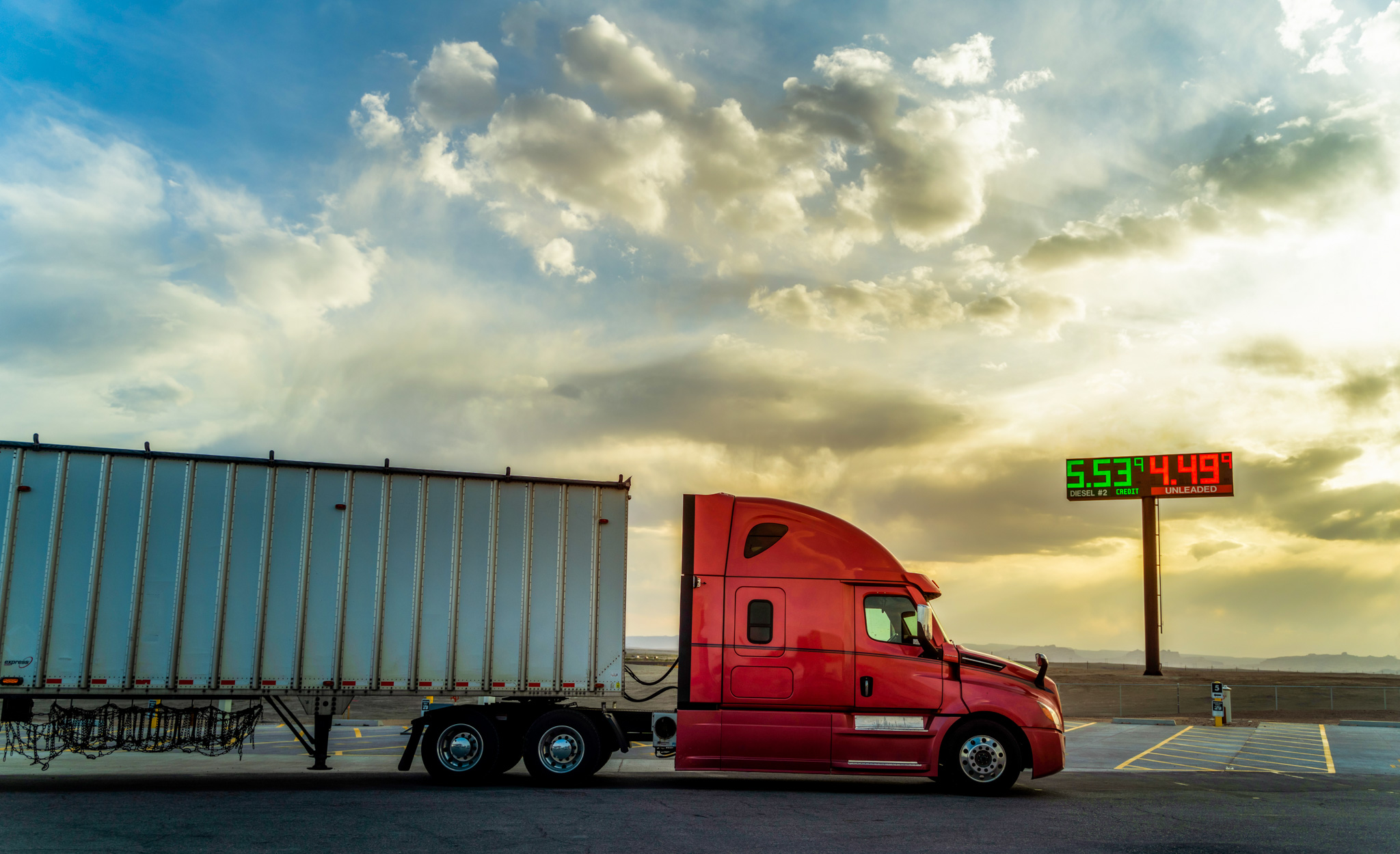
Powering America’s truck fleet is a matter of economic and national security. Tasked with moving nearly 12 billion tons of freight annually – more than 72% of our economy’s total tonnage – the trucking industry depends on an adequate and reasonably priced fuel supply. The American Trucking Associations supports policies that move the United States toward energy independence and reduce fuel-price volatility, including the use of alternative fuels, increased domestic production, and uniformity across state and federal fuel regulations.
With more than 300 billion miles traveled each year, the trucking industry leads on vehicle emission reductions and environmental sustainability. Over the last three decades, emissions from new trucks have been reduced by more than 98%. It would take 60 of today’s trucks to generate the same level of NOx and soot emissions coming from a single truck back in 1988.
Trucking has also virtually phased-out harmful sulfur in the diesel fuel, practically eliminated sulfur oxide emissions, and significantly reduced fine particulate matter from trucks – improving the air quality, wellbeing, and livability of our communities.
ATA is committed to adopting policies that:
- Improve our emissions profile.
- Are technology-neutral.
- Do not significantly increase vehicle maintenance.
- Are thoroughly tested.
- Are affordable to all segments of the industry.
To that end, we work closely with EPA and other stakeholders to develop emission standards for trucks. These partnerships save billions in fuel consumption, fuel costs and emissions for fleets.
Fuels
Diesel Fuel, Gasoline, Natural Gas, and Liquid Petroleum Gas (LPG) are all petroleum-based fuels used by trucking. While diesel fuel dominates the marketplace, fleets are looking for ways to diversify their energy consumption, with natural gas leading the way and electrification emerging as a viable alternative.
ATA supports the goals of increased national energy self-sufficiency and reduced vulnerability to future energy disruption and therefore supports government efforts to promote development of domestic oil and natural gas reserves on a timely basis.
Efficiency
Vehicle and engine efficiency are critical factors to every motor carrier's operation. Improvements to vehicle and engine technologies can provide a positive return on investment while reducing fuel consumption and lowering emissions. Technologies used to improve fuel efficiency include aerodynamics, fuel-efficient tires, idle reduction equipment, speed governors and use of lighter weight equipment.
ATA supports efforts to improve fuel efficiency and reduce greenhouse gas emissions in the trucking industry.
Emissions
The trucking industry is making great strides in reducing diesel particulate matter (PM), CO2, and other known pollutants. Modern technologies like diesel particulate filters (DPFs), and selective catalytic reduction (SCR) have reduced emissions to negligible levels.
ATA supports the goal of clean air and continues to monitor the emissions landscape and provide necessary feedback to federal and state regulators regarding the impacts of continued emissions reduction strategies on the industry.
Sustainability
ATA supports advancing sustainability within the trucking sector through programs such as the EPA Smartway Transport Partnership. ATA opposes efforts to enact a federal cap-and-trade program on the trucking industry, which would increase the cost of diesel fuel without significantly reducing the amount of greenhouse gases emitted by trucks.
Wastes
Pollution of our nation's waterways and land resources should be controlled. Wastes generated through vehicle and facility operations, including oils, fluids, and solvents, should be properly classified, stored and/or disposed of.
ATA supports reasonable regulations to ensure the storage and disposal of wastes without undue costs to the trucking industry.